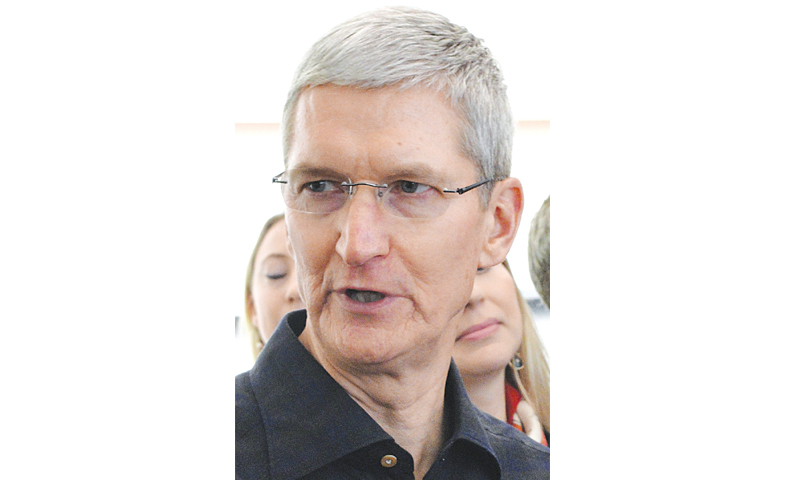
These are a few statements I overheard at a family lunch, reinforcing my belief that Qurbani has now completed its transformation into purely a status statement, meant to up your prestige in society.
Nearing Eidul Azha, the hottest topic of conversations are the qurbaani kay janwar (sacrificial animals). But it isn't the ritual or the spirit behind it which people are interested in discussing; it's the type/breed and most importantly, the size and price of cattle which they have either purchased or are planning to purchase for sacrifice.
When it comes to Bakra Eid, you are inevitably in a state of competition with your family, neighbours, colleagues, friends and even those present at the same bakra mandi (cattle fair), while you're making a purchase. You just have to get your hands on the best one or else you will be gloated over by others.
In search of an obviously oversized goat or cow, you keep visiting themandis and keep inquiring from others. Not only does it get you attention, it also helps you find out about the size of others’ wallets.
Reactionists as we are, we want to be better than others.
Another episode begins once you have brought your cattle home; you have bookings ready for chaanp, paaye, kaleji, maghaz, etc. You have essentially set up a store where shopping for your favourite flank of meat is free once every year, and expect it to earn you tonnes of sawaab.
The number of goats/cows is directly proportional to the level of regard you earn during the Eid stretch. Yes, you score more points in the social realm if you spend more on your gaaye/bakra, and its an added bonus if you are asked to flash the price tag.
You know what's amazing? Amongst women, it's usually lawn which rules the domain of status screaming. But when Bakra Eid comes along, women readily skip chattering about the most expensive lawn to make way for gaaye/bakra expenditure stories.
Let me tell you that if ladies let anything move higher than branded lawn on their gossip agenda for the day, it is cause for concern.
Actually, I'm willing to bet most showoffs secretly wish that their sacrificial animals were branded, so they could flaunt them around as Samsung ka bakra, Gucci ki gaaye or maybe evenKhaadi ki bachhiya.
In fact, they have been branded, even if only with much less chic labels. There have been news reports of animals being named Bholu no. 1,Gullu Butt Bayl and the Shareef Bradraan Jori.
Is that like a saintly gesture to assign identities to the poor animals? Is this a circus or what? Because your animal is gigantic in physique and walks around like an unleashed beast, you chose to find analogies with the famous car-smasher?
Your Gullu Butt Bayl is supposed to be sacrificed, for God's sake...literally!
The question that arises, then, is that in a country where people die from starvation, where the vast majority sees eating meat as luxury, where people suffer heart attacks on seeing their power bills, and where every other year we face a natural disaster, which leaves thousands displaced; do we even qualify for financially exorbitant, ostentatious acts of animal-slaughtering just to be deemed superior?
All the way from Thar to Waziristan, the situation is dire when it comes to even basic food and protection from fatal diseases.
Why must the money go to egocentric and pretentious objectives?
This is not something we can blame the United States or neighbouring countries for. It is a social parasite we've bred ourselves and that has gotten into our very fabric as a society now.
Failing to prioritise, we have gone to such extremes as completely losing any sense or meaning of rudimentary religious rituals, and the Bakra Eid frenzy is just one of the many confused customs.
I do not mean to say that the festivities of the occasion should be compromised but, surely, one must realise that immoderation at one end leads to unbalance in the whole of the society. It triggers a ripple effect.
With every passing Eid, these glitzy trends are solidifying a tad more, turning the entire monomania bigger and bigger, spreading it further and further.
As hypocrisy runs high, ethics and morals are left decaying on the streets, much like the offal will, following all the qurbanis (because of course, once everyone has seen we sacrificed a Samsung, who cares what happens to stinky streets?).
We love to exploit everything for entertainment and social approval. I have seen people borrowing money so that they can commit to the sacred sacrifice just to gain social approval, ignoring the fact that the indebted are actually exempted in Islam.
Not performing qurbani is considered an embarrassment even though it's not even a compulsion. Your sacrifice is your personal affair and you are answerable to no one for it. And increasing the number of animals for slaughter will not get you any extra divine points.
This is a matter of spirit, not statisitics.
Please stop shopping religion.








